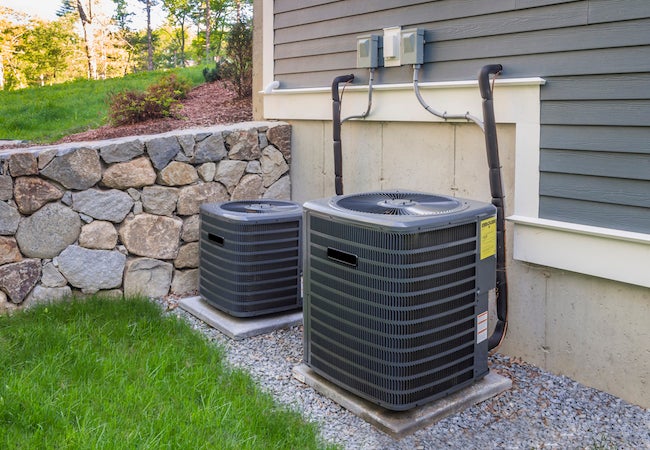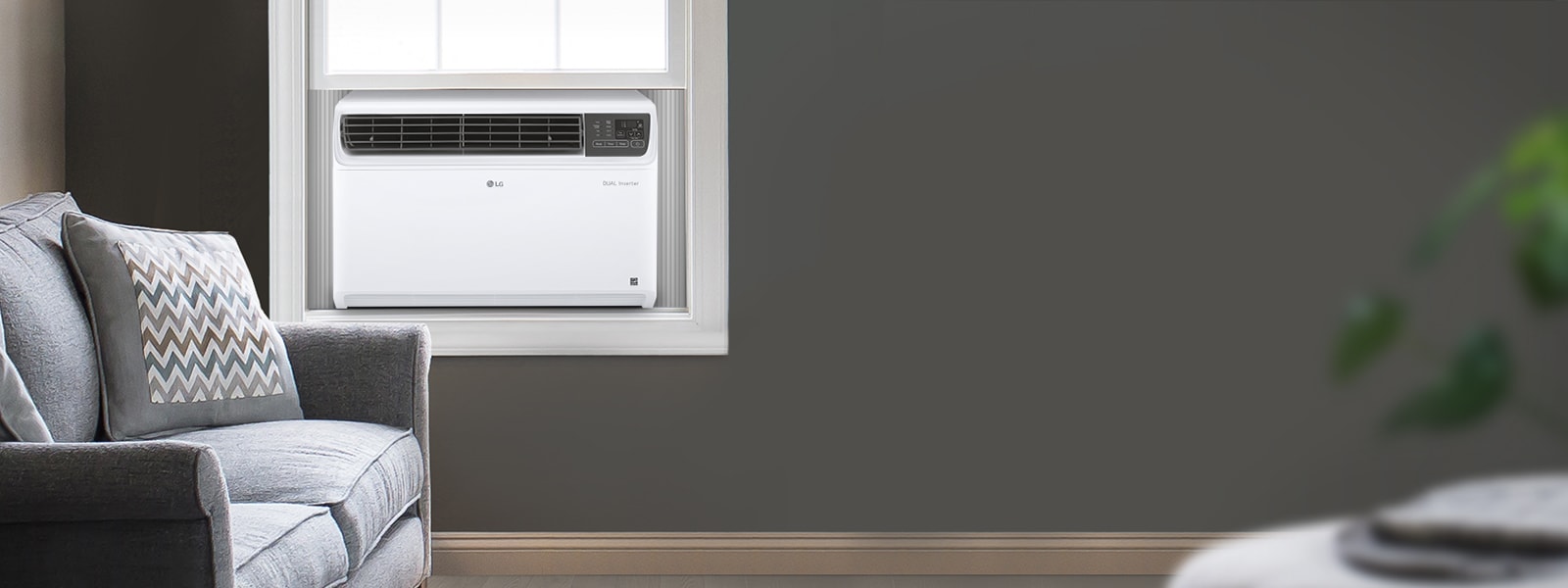Table Of Content

Maintaining the filters is the easiest thing you can do to improve the operation and lifespan of your air conditioning system. An inspection by an HVAC technician can catch any serious problems before they get worse and leave you hot and bothered. The technician will check all the moving parts as well as the refrigerant, and recharge the system if necessary.
Tested: The Best Small Window Air Conditioners
In many cases, the heating and air conditioning share many parts, such as the ducting and filters. For a living room or family room, you’ll want a large air conditioner, 9,800 to 12,500 Btu, especially if you have an open floor plan. For a small bedroom, home office, or guest room, look for an air conditioner with a capacity of 5,000 to 6,500 Btu. Air conditioners make plenty of noise, including the whir of the fan and the sound of the compressor cycling on and off.
The Best Crawl Space Dehumidifiers to Get Rid of Excess Moisture, Tested
If the filter is washable, they’ll want to make sure to clean and scrub it thoroughly before trying to turn on the AC again. Most professionals recommend doing this once every 30 to 90 days; changing the filter is one of the best things homeowners can do for their AC system. The evaporator coil is located in the outdoor unit of your HVAC system. It’s responsible for absorbing the heat energy from the warm air inside your home. It then works with the condenser coil to cool the air and return it to your space.

Condenser Unit is Blocked
Many factors go into determining the correct size HVAC system for a house. Schedule an appointment with Home Depot Professional Services. Mary H.J. Farrell is a senior editor at Consumer Reports whose real passion is for cooking and all that entails.
If those coils are dirty, the unit may not work properly. They can become dirty from dust in the air, tree sap, sticks, leaves and animal activity, among other things. In some cases, the blower fan may be located far away from a room. By the time the air reaches distant rooms the air has warmed in a hot attic.
#1 AC Not Blowing Cold Air Due To Basic Electrical Issues (Blown Fuse, Tripped Breaker)
That means that the total airflow can be restricted if the filters are clogged. Secondly, however, the air conditioner stopping to blow cold air while still running is something to be alarmed about. AC unit not blowing cold air might be an indication of a bigger problem (compressors issues, thermostat issues, low freon levels, etc.).
There are simple steps you can take to ensure your central air conditioning system runs smoothly and lasts its anticipated lifespan. The air in your home carries a large amount of pollutants. Dirt, pet dander, pollen, and dust are captured by the air filter before the air is cooled and returned to your space. To fix the AC not blowing cold air problem, just turn the switch back on. Ice buildup in the air conditioner is actually one of the most frequent issues we face.
Experts share how to prep your air conditioning unit and house for Alabama’s heat wave - WBRC
Experts share how to prep your air conditioning unit and house for Alabama’s heat wave.
Posted: Wed, 28 Jun 2023 07:00:00 GMT [source]
The drain might be clogged and need to be cleaned.
Air conditioners work in part by removing humidity from the air (through condensation), and that moisture must go somewhere. The job of a condensation drain hose is to direct that moisture to a floor drain or to the outside of your home, depending on your system. Condensation drains are subject to blockage by mold and algae growth. When this happens, some air conditioners won’t blow cold air, while others will shut down completely. The compressor is part of the equipment that is outside of the house. It is surrounded by coils that the HVAC system uses to cool the air.
Undersized Unit
In this situation, you may notice a gradual change in the AC not cooling the house. You may also see an increase in your monthly energy bill. The most common reason for a blocked condenser coil is dirt and dust. When particles become trapped inside the condenser’s small metal fins, the component can’t complete its job. The condenser is responsible for removing the heat energy from your home’s indoor air. Most homeowners can do some basic troubleshooting and may be able to resolve the issue.
Even if there is no leak, sometimes pros will recommend an AC recharge, which involves replacing the chemicals in the unit with fresh refrigerant. After checking the power settings, homeowners will want to make sure the thermostat is working. They can make sure that the thermostat was not accidentally switched to heat or auto. If it uses batteries, they can try changing them to see if the thermostat will respond to the controls again.
Some modern thermostats can even automatically change settings. Just correcting its temperature settings is often enough to resolve the issue. We rely on window air conditioners to keep us cool when temperatures climb.

However, there are also times that you’ll need to make the call to your local Carrier® dealer for professional air conditioner service. Sweating through a sleepless night...or slogging through the heat of a sweltering July afternoon. It’s no fun when your air conditioner is not cooling, but it can happen. And when it does, it’s not going to be in the dead of winter. It’ll be the hottest day of the summer, and no matter how many times you turn down the thermostat you still find the AC not blowing air that is cold enough. That’s why it’s a good idea to consider annual air conditioner repair for preventative maintenance.
When the thermostat’s “auto” setting is used, the fan only operates when the unit is working to achieve your desired temperature. Refrigerant is used to facilitate the heat-cold exchange. If your refrigerant is slowly leaking from the refrigerant lines, you will start seeing your air conditioner cooling less and less. The first order of business is to go to the outdoor unit, take off the panels, and check if there is any debris around the compressor.
What you are likely to notice is that your air conditioner was blowing cold air and all of a sudden the air conditioner stopped blowing cold air. While a small unit may be sufficient for mild spring weather, it will struggle to keep up as temperatures increase throughout the summer. If this is the case, it may be necessary for the homeowner to upgrade to a more powerful system. AC size is measured in British thermal units (BTUs) per hour.
Recharging the unit is when an HVAC technician adds more refrigerant to the unit and pressurizes the chemical. The Environmental Protection Agency mandates that only a certified technician can recharge your home’s HVAC unit, so leave this repair to the pros. You might want to check our guide on how exactly to recharge an air conditioner with refrigerant. There are few ways that can be avoided; your HVAC professional will know best.

No comments:
Post a Comment